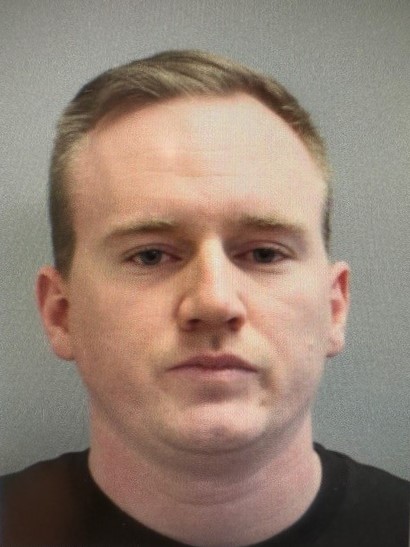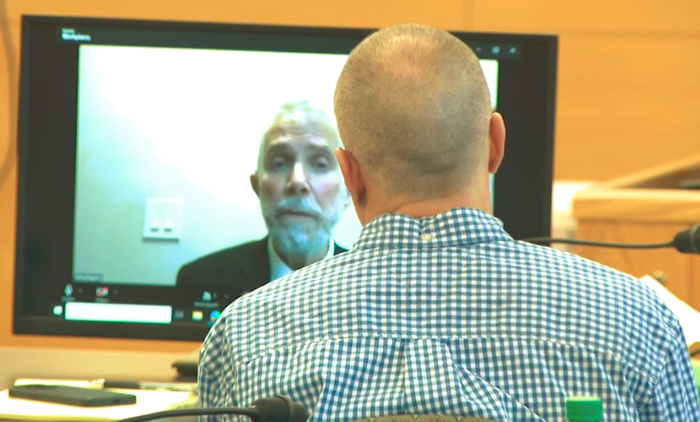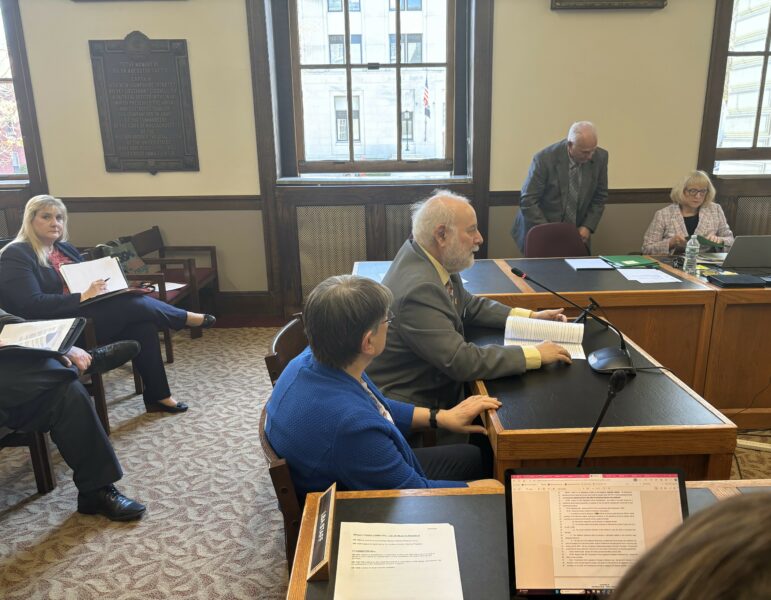Statement from NAMI New Hampshire
CONCORD – On his recent visit to New Hampshire, President Trump suggested addressing gun violence by institutionalizing people with mental illness.
“The statements made by President Trump were ill-informed, and in no way reflect the will and beliefs of the people of New Hampshire,” commented NAMI New Hampshire Executive Director Ken Norton, while echoing the below statement from NAMI National.
Granite Staters assisted in the creation of a 10-Year Mental Health Plan, recently released by the NH Department of Health and Human Services, which calls for building a robust and comprehensive community-based system of mental health care in our state.
Norton stated, “NAMI New Hampshire is grateful that Governor Chris Sununu, along with Democratic and Republican leaders in the NH House and NH Senate, strongly endorsed the priority recommendations identified in the 10-Year Mental Health Plan during the recent legislative session. NAMI NH looks forward to seeing implementation of these recommendations to provide timely access to comprehensive, evidence-based mental health services in New Hampshire.”
Statement from NAMI National
Yesterday, President Trump revisited his statements about reopening mental “institutions” and perpetuated false stereotypes. Two weeks ago, the president also called people with mental illness “monsters.”
In response, National Alliance on Mental Illness Acting CEO Angela Kimball released the following statement:
“The president should be talking about better care and earlier access to intensive treatment, not revisiting the shameful institutions of our past.
“Words matter, Mr. President. ‘These people’ are our friends, neighbors, children, spouses. They’re not ‘monsters,’ ‘the mentally ill’ or ‘crazy people’ – they’re us. Talking about reinstitutionalization only further marginalizes and isolates the one in five people with mental illness. Instead, we need to be talking about the power of early treatment and effective intervention to change lives.”
Today, too often, people languish in emergency rooms and law enforcement officers are responding to avoidable crises because community-based mental health services aren’t there for people who need them.
Instead of focusing on the past, we urge the administration to focus on improving access to mental health care. There are commonsense approaches that we know are effective and that can be implemented now to improve access to mental health services. We must:
- Promote early intervention. Half of all mental illnesses begin by age 14, 75% begin by age 24. Getting help early, such as with Coordinated Specialty Care for first episode psychosis, results in better outcomes and lowered costs.
- Invest in better access to quality care. For example, Certified Community Behavioral Health Clinics (CCBHCs) are helping people get care when and where they need it. Congress needs to extend funding for the CCBHC pilot program and expand it nationwide.
- Divert people from the criminal justice system. Jails and prisons shouldn’t be today’s mental health institutions. Instead, we need readily-available crisis response and intensive mental health services for people experiencing severe symptoms.
NAMI welcomes the opportunity to meet with President Trump and work with his administration on steps for improving mental health services in America.





